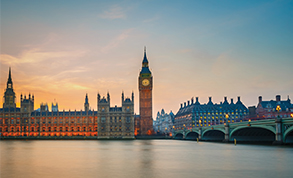Election watch – week two
By the middle of the week, Boris Johnson was distracted by the floods that had hit much of South Yorkshire and neighbouring counties – and the political fall-out from what some claimed to be his tardy response. But Labour grabbed the election headlines with a pledge to increase health spending in England. The party said it would boost day-to-day resource budgets, as well as capital, education and public health spending as part of its NHS ‘rescue plan’.
A Labour government would increase the overall Department of Health and Social Care budget by 4.3% a year in real terms, reaching £178bn by 2023/24. NHS England resource spending would rise by £26bn in real terms to almost £155bn by 2023/24. Capital spending would increase to £10bn a year by 2023/24.
The Conservatives have their own spending plans in the form of the NHS five-year resource settlement, which is set to increase NHS England budgets by £20.5bn in real terms by 2023/24. Mr Johnson has previously announced a hospital building programme – allocating funds to six projects with seed funding for a further 21 trusts as part of a five-year rolling investment programme.
The Tories announced plans to recruit an additional 6,000 GPs and 6,000 more nurses, physiotherapists and pharmacists to create an additional 50 million appointments in GP surgeries each year.
The party attacked the Labour spending pledge and the suggestion that Labour would introduce a four-day working week over 10 years as the economy grows. The Conservatives said this would hit the NHS hard, costing the service more than £6bn a year. Labour’s immigration policy would put additional strain on the NHS, it added.
However, the Conservatives took flack on its immigration policy. It said it would boost the healthcare workforce with a special NHS visa for overseas staff. But the Liberal Democrats said the policy of charging potential overseas NHS staff £464 for this NHS visa was ‘abhorrent’.
If Labour’s NHS spending plans took the early headlines, the latest operational performance figures grabbed them in the latter half of the week. Headlines screamed that hospital waiting times were at their worst-ever level, with key targets in A&E, routine operations and cancer treatment missing targets for more than three years. Opposition parties said the government was at fault, due to underfunding and a lack of staff. However, Mr Johnson insisted a huge rise in demand had led to the figures.
In response to the figures, the Royal College of Emergency Medicine outlined measures the next government must take to address issues in A&E. These include opening at least 4,000 extra beds, addressing problems in social care and providing sufficient capital funding to transform the emergency care system and improve outdated buildings and equipment.
NHS Providers also issued its manifesto of steps it believes the incoming government must take across health and care. The document said the new government must: invest in people; upgrade the NHS estate, equipment and technological capability; ensure services are locally led; and invest in the whole system – including public health, education and social care.
Finally, a familiar figure to many in the NHS community, Stephen Dorrell, the former Conservative health secretary, announced he has stood down from his role as chair of the NHS Confederation. Mr Dorrell, who was expected to leave the post at the end of the year, is to stand as a Liberal Democrat candidate in the forthcoming election. He will be succeeded on an interim basis by Andrew Cash.
Related content
We are excited to bring you a fun packed Eastern Branch Conference in 2025 over three days.
This event is for those that will benefit from an overview of costing in the NHS or those new to costing and will cover why we cost and the processes.